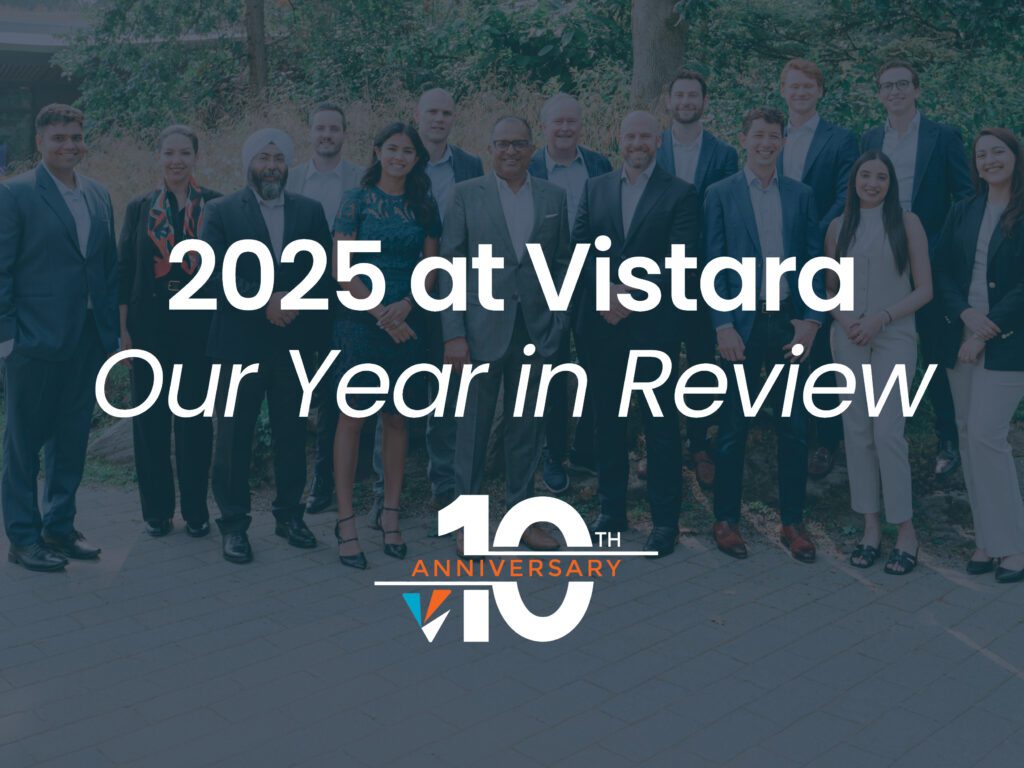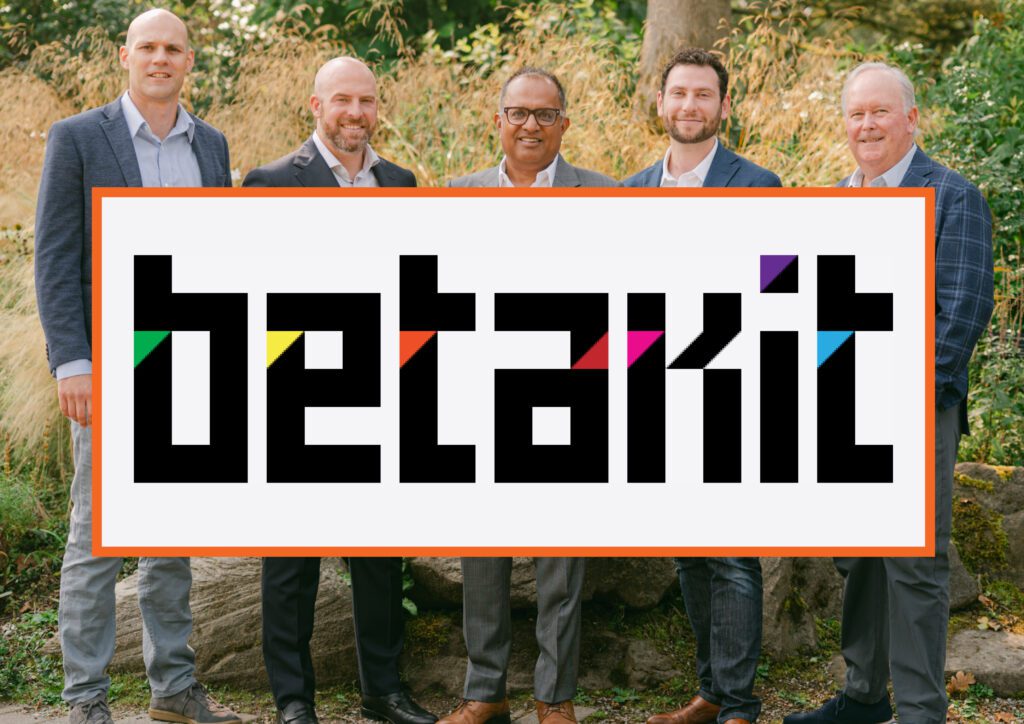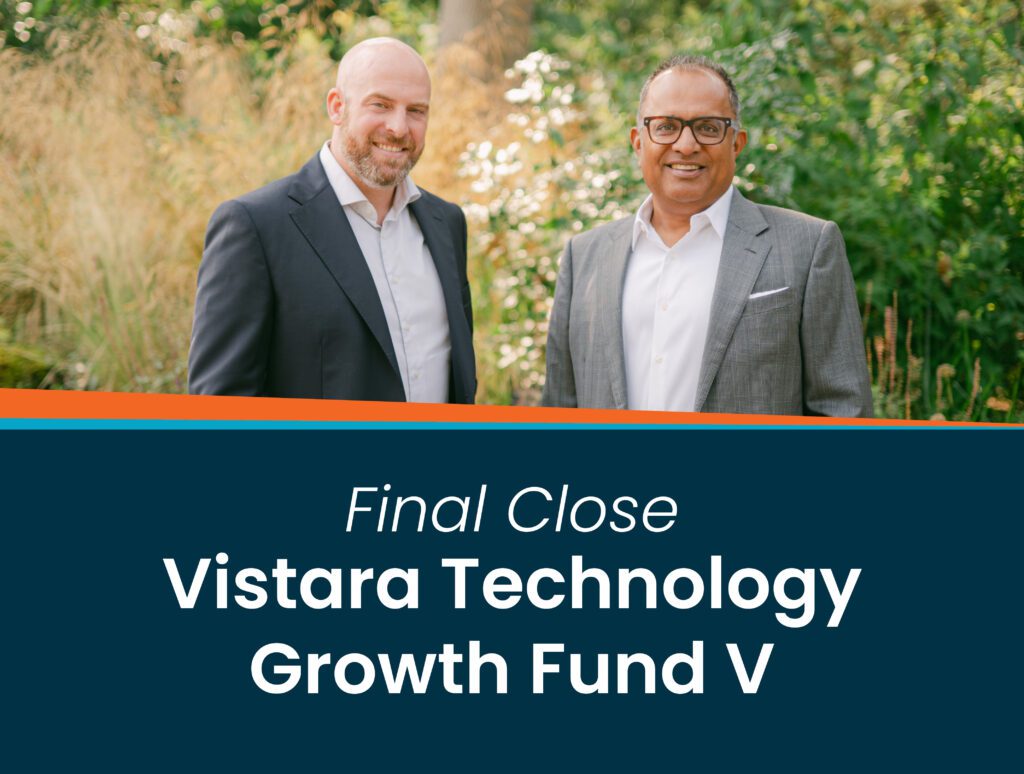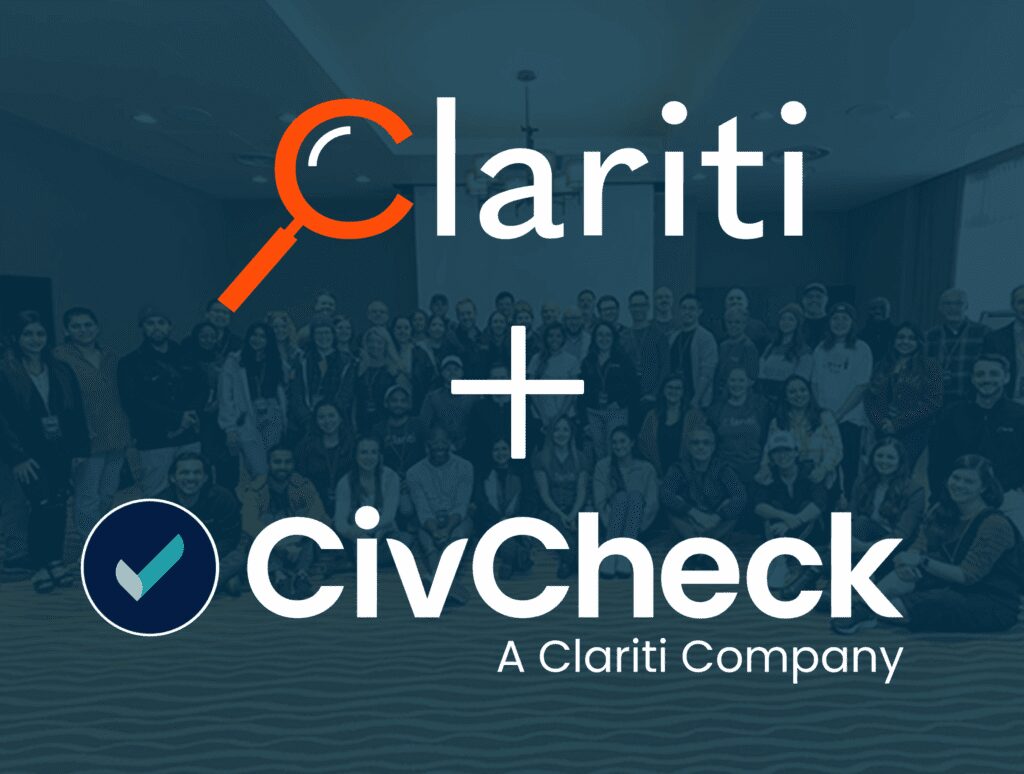Media Source: Globe and Mail – Read the Article on Globe and Mail | September 2, 2025
Sean Silcoff > Technology Reporter
Vistara, which thrives on underserved software financing niche, raises $265-million fund

Randy Garg is a partner at Vistara and the firm’s specialty is providing credit to private software companies and obtaining an additional equity sweetener such as warrants to buy stock at a future date, or convertible debt. – Jimmy Jeong/The Globe and Mail
Randy Garg is a quiet, understated presence on the Canadian technology scene, which is sharply at odds with his impressive success bankrolling private software companies.
The Vancouver financier’s firm, Vistara Capital Partners Ltd., has funded 42 businesses since its founding in 2015 and has yet to lose a penny on a deal. Two of its funds ranked among the top 10 performers in their asset class globally in 2024, according to market research firm Preqin, and have returned 100 per cent or more of their investors’ capital. Its other two funds are close, making Vistara a rare performer in a prolonged down market for early-stage financiers.
Now, after thriving by honing in on an underserved niche for software financing, Vistara is nearly done raising its fifth fund. It has secured US$265-million and Mr. Garg expects to hit US$300-million by its Sept. 30 deadline. It has already done eight deals with the proceeds.
That would be 50 per cent-plus larger than Vistara’s US$193-million Fund IV in 2021, which was also markedly bigger than its third US$116-million fund in 2016 (Vistara is Sanskrit for “limitless expanse”). Mr. Garg said Vistara fell short of its US$400-million goal as many investors are still tied up in other tech funds that haven’t returned their capital.
Still, it will be one of the top tech-focused funds in Canada, a feat Vistara has achieved by relying on family offices, wealthy individuals, foundations and wealth managers, rather than institutional investors. Vistara’s biggest backer is B.C. real estate developer Ryan Beedie, Mr. Garg’s ex-employer.
“Randy looks at every deal as if it’s his own money going into it,” said Mr. Beedie, whose Beedie Capital has anchored every Vistara fund, committing $140-million and co-investing $25-million in deals alongside the money manager. “The track record speaks for itself.”
Vistara’s specialty is providing credit to private software companies and obtaining an additional equity sweetener such as warrants to buy stock at a future date, or convertible debt. “We mash together growth equity, late-stage venture capital with private credit and create this different type of credit,” Mr. Garg said. “In every deal we want to cover the downside, get paid to wait but play for the upside.”
The firm typically offers between US$10-million and US$30-million in three-to-five year debt to companies in financial technology, cybersecurity and health care information technology generating US$10-million to US$100-million in annual revenue with strong customer retention. That size of financing is typically less than what giants such as BlackRock or Goldman Sachs are willing to provide, meaning that Vistara faces less competition for what it does, Mr. Garg says.
Vistara does 70 per cent of its deals in the U.S. and the rest in Canada.
While borrowers don’t have to be profitable or growing at a blistering pace, they do have to be on the path to break even within three years – and have a plan to use the money to increase the value of the company, Mr. Garg said.
The debt gives companies the option to finance growth without diluting ownership. And the equity sweeteners give Vistara a chance to juice returns if the companies subsequently raise equity or sell at higher valuations. Vistara can also exit if companies swap in bank debt for its loans.
With its debt carrying interest rates in the low teens, Vistara has managed to bump up net returns to about 15 per cent annually, with the equity add-ons accounting for 30 per cent of gains, Mr. Garg said.
Veteran Vancouver tech executive Steve Munford, an adviser to the 15-person firm, said the question for financiers “is always can they perform in both a bull and bear market and make good decisions” in either. “They’ve proven they can.”
Mr. Garg’s relationship with Mr. Beedie has been critical to his success. The pair met at University of British Columbia’s MBA program in 1991. They bonded over a shared love for U2 and the Toronto Blue Jays and stayed friends as Mr. Garg went into venture capital and Mr. Beedie returned to the family real estate business. By 2010, Mr. Garg was looking to go after a gap in the financing market where Vistara now plays. Mr. Beedie was thinking about branching out with his investments.
They met to throw ideas around, which quickly led to discussions about forging a partnership. Mr. Beedie had the capital; Mr. Garg had the contacts. “It didn’t take long to go, ‘Okay, let’s do this,’” Mr. Beedie said. They founded Beedie Capital, which Mr. Garg led for five years before setting out on his own. “We were the first people to invest in Vistara, because I believe in him and wanted to send that signal to the market,” Mr. Beedie said. “I’m glad we did.”











